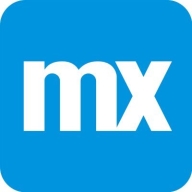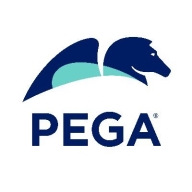

Pega Platform and Mendix are leading platforms in low-code development. Pega has a stronger emphasis on enterprise-level case management and flexibility, while Mendix excels in rapid prototyping and ease of use for non-developers.
Features: Pega Platform offers strong case management, BPM capabilities, and excellent integration services. It is particularly praised for its no-code functionalities, enabling robust process customization. Mendix provides rapid prototyping, a powerful mobile development framework, and a visual development environment that speeds up project timelines and is highly accessible to non-developers.
Room for Improvement: Pega needs to enhance its pricing models and cloud presence. It often requires experienced developers, making it less ideal for smaller enterprises. Mendix could improve its UX/UI design, seamless legacy integration, and scalability with large datasets. Attention to pricing could help Mendix remain competitive.
Ease of Deployment and Customer Service: Both platforms support on-premises, public, private, and hybrid cloud deployments. Pega offers extensive deployment flexibility but is complex, requiring experienced professionals, and sometimes lacks responsive customer support. Mendix is user-friendly in deployment across cloud environments and benefits from an active community, though its direct support needs improvement.
Pricing and ROI: Pega's high pricing fits enterprise-level features, potentially deterring smaller businesses, yet offers significant ROI for large-scale projects. Mendix, while less costly than Pega, still presents a higher cost structure that may be prohibitive for smaller firms, though its fast deployment can result in substantial ROI.
It's not that they're really firing that personnel, but they can often focus on the core that really matters instead of repetitive processes in Excel forms and all of the overhead and human error that comes with that.
I see a fair return on investment using Mendix.
I haven't often needed to seek direct support from Mendix teams as their online resources and knowledge database are comprehensive.
Mendix provides proper support, troubleshooting options, and a helping community.
If it's about having an issue that I can't solve despite being a Mendix expert and having tried every single bit and piece, support can feel like a stone wall.
I never needed support from the platform standpoint, but if additional features are required, we have regular meetings with the product team for feedback.
The technical support from Pega is very low, rating a one or two out of ten.
Pega's technical support team is very helpful.
Mendix supports scaling well with its comprehensive online documentation and learning paths.
Mendix provides options for handling scalability and maintainability through features like validation, workflow and nanoflow minimization, and user components, enabling projects to be easily managed and scaled.
Also solutions processing data at scale, talking about one million packages a day.
Currently, big banking providers and insurance providers, even the members for healthcare payers, are using more than millions of operations on a daily or weekly basis.
Mendix has been stable in my experience, with reliable performance for enterprise applications and minimal downtime or critical issues.
I recently encountered an issue with deploying applications on the Mendix sandbox, which took a week to resolve.
Access to the database is limited in Mendix's public cloud, preventing direct database interaction or inspection.
I choose a seven mainly due to the issues we've faced with slowdowns and bugs during development, while runtime has been very stable.
Native development is not very strong, and some developer tools are missing, such as shortcuts to edit multiple variables.
Pega introduced Constellation, which allows a user to build a more engaging visual experience.
For customer interactions, while the Pega Platform's AI-based decisioning and predictive analytics are great, the Process AI is not very popular yet, as it works on process data rather than customer data.
My learning curve in robotics has been challenging.
The app license costs between $13,000 to $14,000, which is prohibitive for startups.
My experience with pricing, setup cost, and licensing is reasonable;
Pega is priced higher than open-source options like Flowable but is suitable for large-scale industries like banking and insurance.
The pricing is expensive, and this is an issue.
From a licensing perspective, it is higher than the competition.
Mendix's integration capabilities are impressive, allowing for rapid and on-the-fly integration of almost anything imaginable.
The best features that Mendix offers are proper guardrails that prevent starting from scratch, ensuring a certain level of security, user experience, and standardization for implementing workflows, API integrations, and how you set up your domain model.
For security, I value the built-in authentication, role-based access control, and data protection features, which make enterprise apps safer without needing heavy custom setup.
Management capabilities such as dashboards.
Pega Platform is excellent for enterprise-level solutions with integrations to entire systems, including case management, service orchestration, CRM, decision-making capabilities, digital process automation, and AI-driven functionalities.
| Product | Market Share (%) |
|---|---|
| Mendix | 5.3% |
| Pega Platform | 6.7% |
| Other | 88.0% |


| Company Size | Count |
|---|---|
| Small Business | 25 |
| Midsize Enterprise | 6 |
| Large Enterprise | 23 |
| Company Size | Count |
|---|---|
| Small Business | 9 |
| Midsize Enterprise | 15 |
| Large Enterprise | 68 |
Mendix is a low-code application development platform that helps your organization accelerate its application development lifecycle. The solution is designed to enable you to create software faster by abstracting and automating the development process for better business outcomes at speed and scale. Mendix has many key capabilities, including a tailored IDE for every developer, built-in collaboration tools for team development, feedback management, agile project management, the ability to build a truly responsive design across devices, and much more.
Mendix Features
Mendix has many valuable key features. Some of the most useful ones include:
Mendix Benefits
There are many benefits to implementing Mendix. Some of the biggest advantages the solution offers include:
Reviews from Real Users
Below are some reviews and helpful feedback written by PeerSpot users currently using the Mendix solution.
PeerSpot user Somnath G., Solution Architect and LowCode Practice Lead at a tech services company, says, "What I found most valuable in Mendix is that it's very much suitable for mobile apps such as native Android or IOS supported mobile apps. The multiple features of the platform are very, very attractive and very popular. Mendix has technical features such as microflows and nanoflows. You can also access data models in the platform. These are the features that are very, very strong in Mendix. I got my hands dirty on other low-code platforms, but I have not seen such strong features in them compared to the microflows, nanoflows, and data model access that are in Mendix, including creating and integration. The platform has out-of-the-box adapters or out-of-the-box-connectors that you can integrate with different interface applications such as SAP, Salesforce, Oracle EBS, etc."
Sameer V., Consulting Manager at Deloitte, mentions, “Their native mobile capability is very good. In general, the way they launch the product has been great. Their product launching strategy is far better than any other platform. I work in OutSystems and Mendix. They tend to be more on the legacy side, OutSystems. With this solution, the product launching strategy is very, very agile. I really like when they roll out their updates, which are very, very frequent.”
Robert B., Solutions Architect at a computer software company, explains, The solution is just very quick and responsive. The initial setup is very straightforward, and those implementing the product do not have to be very technologically advanced in order to manage the process.”
Pega Platform provides flexible business process management with a focus on rapid application development and automation through a low-code approach, enhancing efficiency across sectors.
Pega Platform is renowned for its ability to streamline operations with robust automation features, including robotic process automation and decision-making capabilities. Its intuitive interface and workflow management contribute to a reputation for enhancing business processes. Although users face challenges with integration limitations and high licensing costs, they benefit from rapid deployment and efficient process adaptations. The unified architecture reduces complexity, while case management and integration services support digital transformations in sectors such as banking, insurance, and healthcare.
What are the key features of Pega Platform?In industries like insurance, banking, healthcare, and government, Pega Platform is implemented to automate diverse workflows, supporting initiatives from claims processing to customer onboarding. Enterprises use Pega for case management and digital transformations, valuing its out-of-the-box integrations and real-time reporting capabilities to boost operational automation and enhance customer experiences.
We monitor all Rapid Application Development Software reviews to prevent fraudulent reviews and keep review quality high. We do not post reviews by company employees or direct competitors. We validate each review for authenticity via cross-reference with LinkedIn, and personal follow-up with the reviewer when necessary.